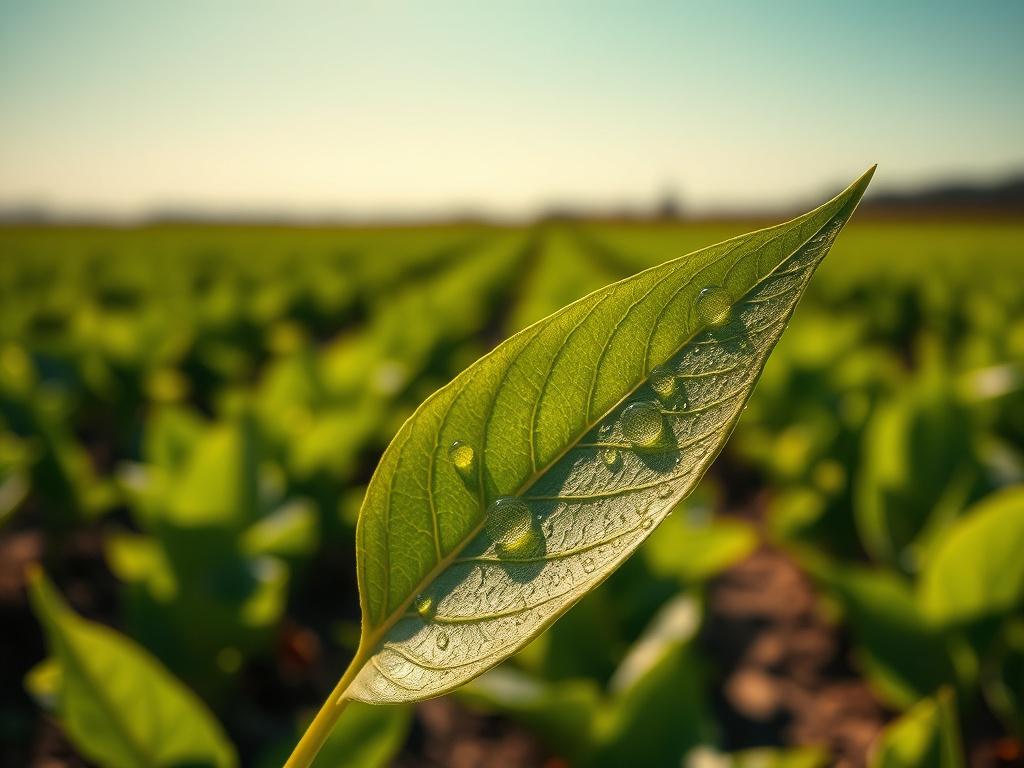
Maximizing crop yield is a top priority for every grower, and organic foliar feeding offers a powerful, sustainable solution to achieve just that. By delivering vital nutrients directly to the leaves, this method bypasses potential soil limitations, ensuring your plants receive immediate nourishment. Discover how organic foliar feeding can boost your crop yields sustainably, promoting healthier, more robust plants while reducing reliance on synthetic fertilizers. This eco-friendly approach not only supports vibrant growth but also strengthens plant resilience against pests and environmental stressors.
In this blog, you will learn practical techniques to nourish your plants effectively through their leaves, unlocking their full potential naturally. From selecting the right organic foliar sprays to optimizing application timing and frequency, we’ll guide you step-by-step toward enhancing plant performance. Embrace sustainable foliar nutrition to foster vigorous growth, improve nutrient uptake, and ultimately increase your harvest—all while protecting the environment and maintaining soil health.
Unlock the power of organic foliar feeding for higher crop yields
Organic foliar feeding offers farmers a dynamic way to boost crop yields by delivering essential nutrients directly to plant leaves. This technique bypasses the soil, allowing plants to absorb vitamins, minerals, and trace elements quickly and efficiently. By supplying nutrients at critical growth stages, organic foliar feeding helps plants develop stronger stems, healthier foliage, and improved fruit production. This direct nourishment accelerates nutrient uptake, resulting in more vigorous growth and ultimately higher yields without relying on synthetic fertilizers.
Implementing organic foliar feeding also supports sustainable farming practices by reducing nutrient runoff and soil depletion. It encourages balanced plant nutrition while minimizing environmental impact, making it an ideal choice for eco-conscious growers. When combined with healthy soil management and crop rotation, foliar feeding maximizes the potential of your plants to stay resilient against pests, diseases, and environmental stresses. This holistic approach empowers you to cultivate robust crops that thrive naturally, ensuring both productivity and long-term farm health.
Practical techniques to nourish your plants directly through their leaves
To effectively nourish your plants through foliar feeding, start by selecting the right organic nutrients that suit your crop’s specific needs. Use liquid seaweed extracts, compost teas, or diluted fish emulsion, as these provide essential micronutrients and growth hormones directly to the foliage. Apply the foliar spray during early morning or late afternoon to avoid rapid evaporation and ensure maximum absorption. Make sure to cover both the upper and lower leaf surfaces evenly, as stomata on the underside play a key role in nutrient uptake.
Regularly monitor your plants for signs of nutrient deficiencies or stress to adjust your foliar feeding schedule accordingly. Maintain consistent spray intervals, typically every 7 to 14 days, to provide a steady supply of nutrients that support healthy development. Use fine mist sprayers to avoid leaf damage and ensure thorough coverage. By integrating these practical techniques into your routine, you actively promote faster nutrient absorption and improve overall plant vitality in a sustainable, organic manner.
Enhance plant growth and resilience naturally with sustainable foliar nutrition
Organic foliar feeding strengthens plants by delivering essential nutrients straight to their leaves, where absorption happens quickly and efficiently. This direct nourishment supports vital processes like photosynthesis and cell development, boosting overall plant health. By using natural, biodegradable foliar sprays, you avoid the risks associated with synthetic chemicals, promoting a healthier ecosystem in your garden or farm. Healthy plants develop stronger root systems and improved resistance to pests and diseases, reducing the need for harmful pesticides and fostering long-term sustainability.
Sustainable foliar feeding also helps crops withstand environmental stressors such as drought, heat, and nutrient-poor soils. When plants receive balanced trace elements and micronutrients through their foliage, they recover faster from adverse conditions and maintain steady growth. This technique encourages resilience by supporting crucial metabolic functions without overloading the soil with excess fertilizers. Ultimately, adopting organic foliar feeding aligns with ecological principles, enhancing your crop yields while protecting the environment for future growing seasons.